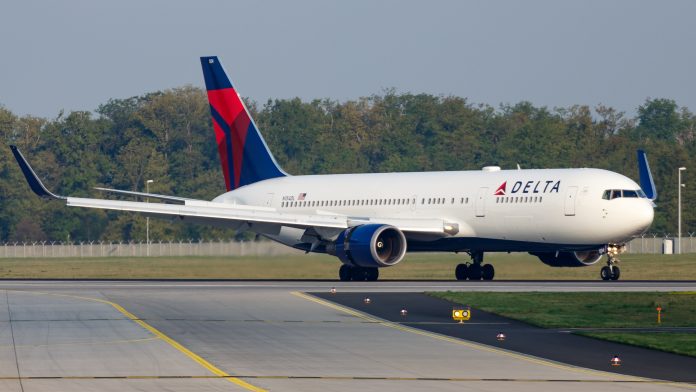Changes in aircraft economics are leading to cuts in airline service at small airports.
The 50-seat regional jets that used to provide much of the service to such airports are fuel-guzzlers and are being retired from service. A new study from Swelbar-Zhong finds that as of June, 50-seat regional jets will fly only 53% of the departures they flew three years ago. And this shows up in numbers for the big-three legacy carriers. For airports that rely on 50-seat regional jets, American this June will serve only 33, down from 42 in June 2019.
And while Delta and United have not cut any airports so far, their connections to hubs from small airports are down from 2.2 per day to 1.7. The same report also looks at airports served 100% by regional airlines. The June 2022 schedules show American-affiliated regionals will serve 122, down from 139 in June 2019. Delta is down from 82 to 76, and United is down from 142 to 124.
Newer, larger regional jets have better fuel economy, but that’s meaningful to their operator only if they fly mostly full of fare-paying passengers. So this leads to one or two large RJs replacing three or four small RJs. As industry analyst Bill Swelbar points out, that may be okay for vacation travelers, but not for those needing to make timely connections at a large hub airport. So this is not only a problem for small airports; it is also a problem for business travelers and others needing to make connections.
About 100 small airports are eligible for per-passenger federal subsidies under the Essential Air Services program, enacted in 1978 as a 10-year transition program to help smaller cities adjust to newly deregulated air travel. That program has numerous flaws and inequities and it does not directly address the changes in aircraft economics that are driving the changes noted above. So what hope is there for smaller airports?
One promising trend is the ongoing growth of ultra-low-cost carriers, including, Allegiant, Avelo, Breeze, Frontier, Spirit, and others. These carriers seek to connect smaller airports with popular destinations, especially for leisure travelers (though some budget-conscious business travelers use them, too).
A possible future option is regional air mobility, via a new generation of electric vertical take-off and landing (eVTOL) aircraft, though at this point their business case is unknown and uncertain. An opinion piece in Aviation Daily by David Marcontell of Waltzing Matilda Aviation explains its plan to offer fuel-efficient service to small airports using DHC Dash 8 Q400 turboprops initially, with possible future upgrades to Universal Hydrogen’s fuel-cell electric conversion. That, too, is speculative, but his point about the potential of fuel-efficient turboprops to replace fuel-guzzling 50-seat RJs is sensible.
Another option already in motion is customized bus service. American, Sun Country, and United have made deals with bus operator Landline. American, its most-recent partner, will begin Landline service on June 3, 2022, between Philadelphia and two small airports: Atlantic City and Allentown/Bethlehem. Already in operation is Landline service for United from Fort Collins and Breckenridge (CO) to United’s Denver hub. And Sun Country has Landline service from seven small airports in Minnesota and Wisconsin. The value proposition for customers is being able to check in for their flights and be security-screened at a Landline Portal at the small airport and then be delivered directly to their gates at the destination airport. The Landline buses have leather seats, free Wi-Fi, in-seat power, and streaming entertainment.
Landline, in my view, has a lot of potential and has just raised $28 million to expand its service. And from a public policy standpoint, it is unsubsidized, unlike the poorly justified federal Essential Air Service program, still in existence after 44 years.
Originally published by Reason Foundation. Republished with permission.












[…] post Robert Poole: Rethinking Airline Service at Small Airports appeared first on Heartland Daily […]